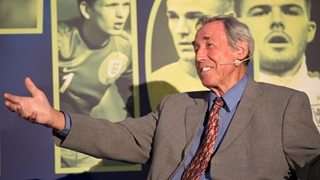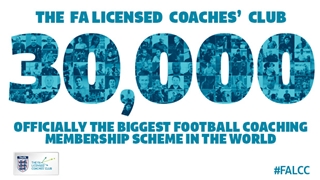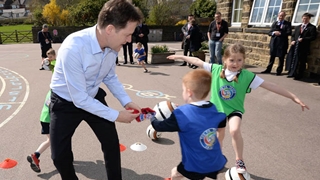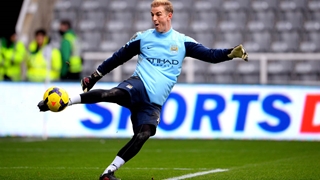
Gordon Banks believes his dedication to individual training, often when everyone else had gone home, was the secret behind a glittering playing career which saw the 1966 World Cup winner become the best goalkeeper in the world.
Speaking at The FA Licensed Coaches’ Club Goalkeeper Conference at St George’s Park, the England legend revealed that in an era without goalkeeper coaches he took it upon himself to complete countless afternoons of solitary training.
“Goalkeepers didn’t do a lot of work in those days. Very little shooting practice, they just did a lot of running training and exercises. You weren’t learning all that much or improving.
“At all my clubs I insisted to the trainer and manager that players could stay back and bang balls at me. I was there working in the afternoons when everybody else had gone home. You had to, because there were no goalkeeper coaches in those days.”
“I’d get one or two lads to knock crosses, so I could come out and jump and catch crosses and hit balls from the edge of the box for me, so I could narrow the angles and learn those types of things.”
Banks’s dedication led to 73 international caps as well as the accolade of FIFA goalkeeper of the year on six occasions. However it is for making arguably the world’s best ever save from Pele in the 1970 World Cup Finals which he is most famed.
Speaking at the two-day Evolving Role of the Goalkeeper event attended by 500 goalkeeping enthusiasts, Banks admitted that it wasn’t until recently he realised how good a save it was.
“Pele was the greatest player I’ve ever seen play. There’s been some great before, during and after my carer but this guy was the best I’ve ever seen.”
“When he punched that ball with his head, it was very, very close to me. Seriously I didn’t realise until a year ago how close he actually was.
“I thought he was between the penalty spot and the edge of the area, but he was in front of the penalty spot when he headed it.
“The hardest part was that it wasn’t going to drop in line with my dive, so I had to anticipate how high it was going to bounce up off the hard surface.
“As I reached back I got my hand to it and it went up I thought it was a goal. Only when I hit the floor and saw the ball bounce behind the goal did I realise I’d saved it. I couldn’t believe it.”
The two day FA Licensed Coaches’ Club Goalkeeping conference held at St George’s Park focused on the evolving role of the goalkeeper with a series of practical and theory sessions by some of the country’s best goalkeeping coaches.







